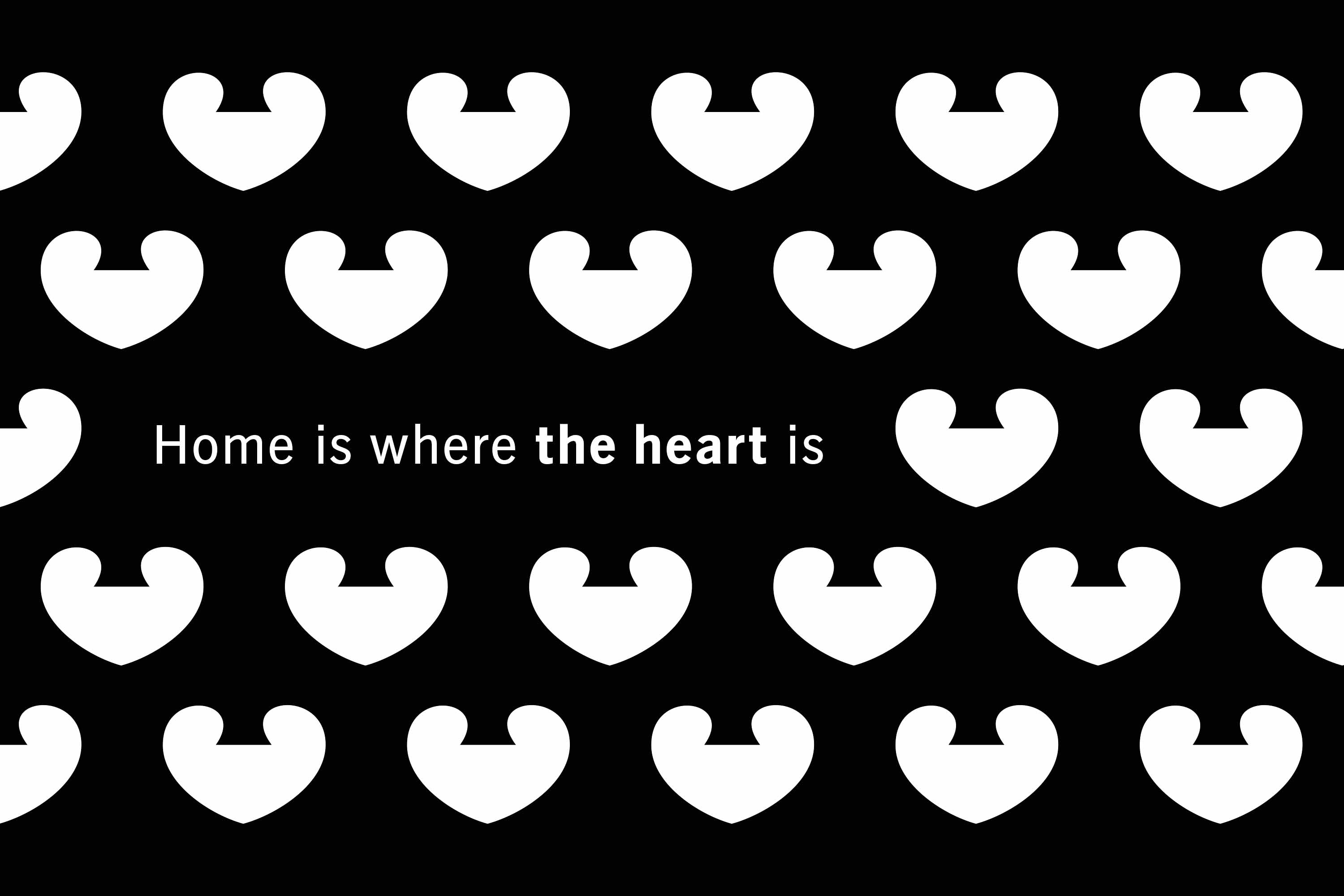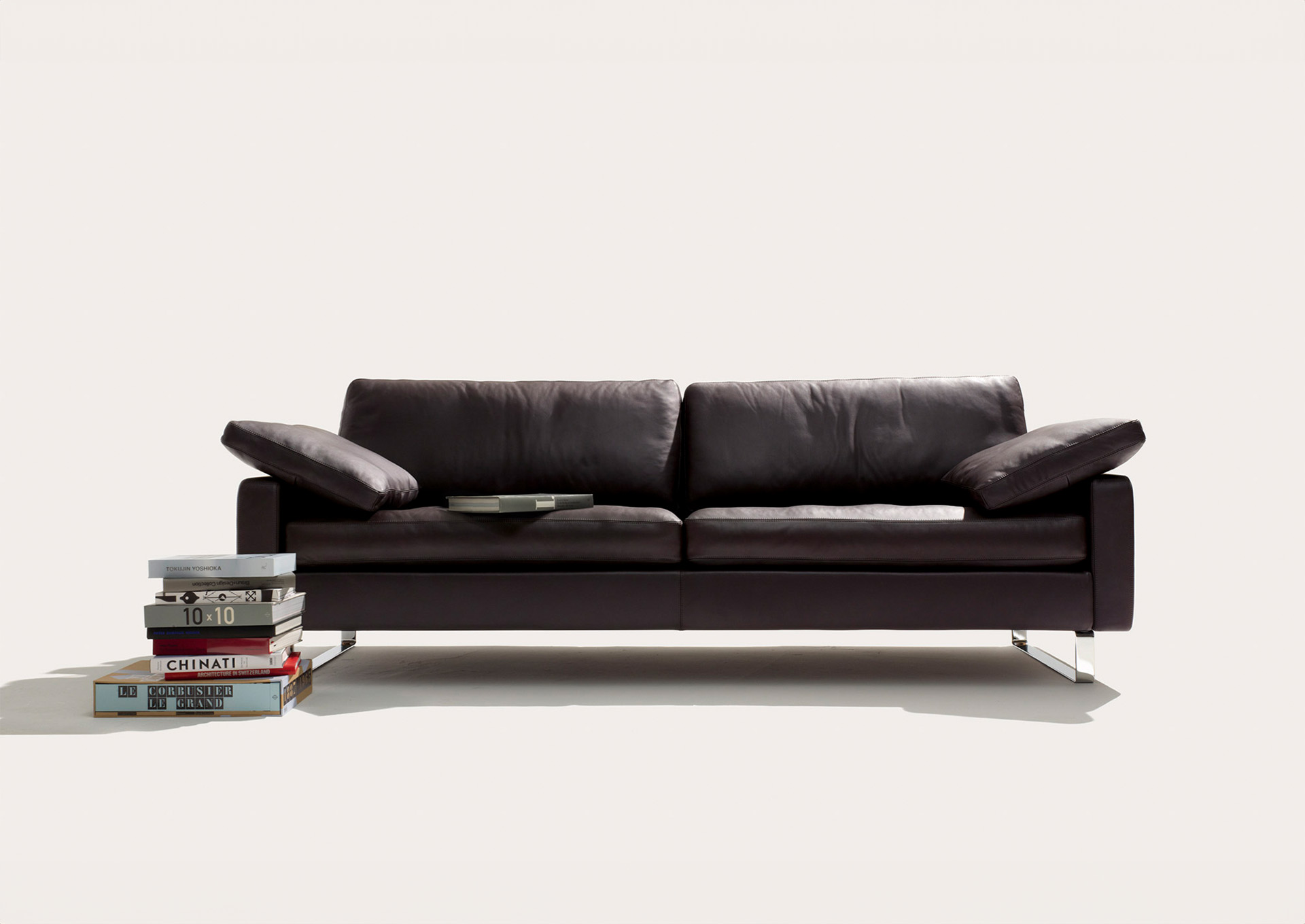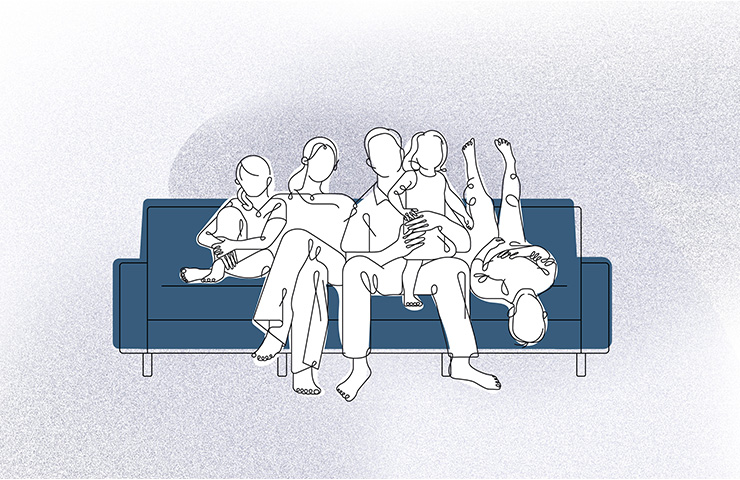Sprawler or dominant male?
The thinker
Thoughtful, doubtful or already in a state of desperation? That is the question here. It depends on how often and for how long one sits in the Thinker position. A few minutes a day could be quite a good idea, since it concentrates you on your physical centre, your abdomen. Often it will help you to find a solution to a problem that has been bothering you.
However, if you notice yourself often slumping into this position, you should take that as a warning sign. It either means you tend towards depression, or you are isolating yourself and withdrawing inwardly. The Thinker position can make you lonely; it is the posture of being alone. And as I have said, it is better if it does not become a favourite position, since sitting postures can not only express a mood, they can also affect one's state of mind. If you sit upright with self-confidence you will gain more self- confidence. If you slump in on yourself you will feel neglected and in need of protection.
The fearful one
This, of course, is the number-one sitting posture among applicants at an interview. Perched on the front edge of the chair, since, please, he doesn't want to bother anyone and will be gone again in a minute. The tension which the body inevitably has in this position makes it easy to deduce the psychological state: the person is under great stress and does not want to do anything wrong. If you remain in this tense, strained position for long you will fall forwards off the chair. Fortunately that happens seldom because you automatically assume another posture - or you get up and go. If during a stressful interview you notice that you are sitting so tensely, you should quickly change something: slide back on the chair, or lean your body back against the backrest and breath deeply, so that you loosen up.
The dominant male
Someone who sits like this does not like to have anyone next to him. In fact, he needs all the space on the sofa for himself Men assume this position, especially men who have a lot to say in their jobs. It's the typical pose of the boss, the dominant male who wants to make it clear to all who is in charge. The “make space” posture ensures that even the most disrespectful employee recognises where he stands.
Men may appear dominant when they spread out like this on a chair, armchair or sofa, but women who do so have a very strange effect. It may be unjust, but for centuries we have learnt that ladies simply do not sit like this. One reason was probably that you could see up their skirts if they did. But in an age when the trouser suit has long since established itself among ladies, it is still not a good idea for a woman to sit this way at a conference or a business meeting. Everyone would laugh to themselves and think, “Doesn't she know what's proper?”
The sprawler
To interpret this posture you have to take the context into account even more than with others – the situation in which it is presented. If the boss sits like this during a job interview, it says to the applicant that he can cease to make any further effort. The post is taken – by someone else! After all, anyone to whom so little respect is shown is not about to be taken into employment. This posture means: "I am the master around here, I permit myself anything, even putting my feet up on the table. And you won't for a minute get your foot through the door in this place.
At home in the living room it can mean something quite different. He might be stretching out on the armchair, folding his arms above his head. He's relaxed and wouldn't mind if his girlfriend ran her fingers through his hair a bit. “Come here, I'm open to some affection”, might well be what the sprawler is trying to say with this posture.
At work, on the other hand, among colleagues, it is more likely to mean he does not want any attention. The very same posture can then mean: “Leave me alone, I want to think and I have no time for office chat.”
The bunny
Oh my, what a fearful little thing! The sight of someone sitting like this initiates protective instincts in others because it signals a need for protection. It shows that the sitter is intimidated, either by the many unknown people around him, or by his situation in life. You often see youngsters sitting like this, cowering in a curled-up pose rather like that of the embryo in the womb.
Strangely enough, many teenagers seem to believe that this embryonic posture looks cool to others. Perhaps because it is unconventional. In reality one would sit on the floor like this, but not on a chair or armchair. The Neanderthals probably assumed this position when they sat on the ground, but it simply does not suit the chair. Unless, that is, you happen to be watching a scary thriller on TV!
The pseudo-casual
"Hey, I'm a relaxed kind of guy. I don't care that this is a job interview and I am the applicant. No-one can bother me». That is the kind of message this person might be trying to put across with his posture. Unfortunately the person sitting across from him notices outright that he is trying to seem casual when in reality he is not. It becomes especially clear when the legs are so close together that the knees touch, which can signal inhibition. Not good!
And yet, as always with matters of body language, the meaning of this posture can depend very much on the context of the sitting scene. It may well be that this is how someone sits on their sofa at home; then it can only speak of relaxation - such as when you want to take the weight off your neck muscles.
The aristocrat
This sitting posture can certainly emanate dignity and competence. Chest out, shoulders back, legs crossed loosely or placed parallel with one of attentiveness and elegance. Many business-women sit like this. And if you want the ideal model for the most noble variation of this posture, Sabine Christiansen masters it to perfection.
However, with almost the same posture you can also signal defensiveness and tension. For instance, if you not only cross your legs, but also wind the foot of your upper leg around the ankle of the lower; or if you let your shoulders hang in a kind of slump, it indicates a lack of self-confidence. Even worse is when the would-be aristocratic sitter places one leg on the other so that it is parallel with the floor. If he (or she) then folds his arms in front of him, then that means “I don’t want to allow anything to get to me. I don’t want to say anything, nor to be asked anything”.









